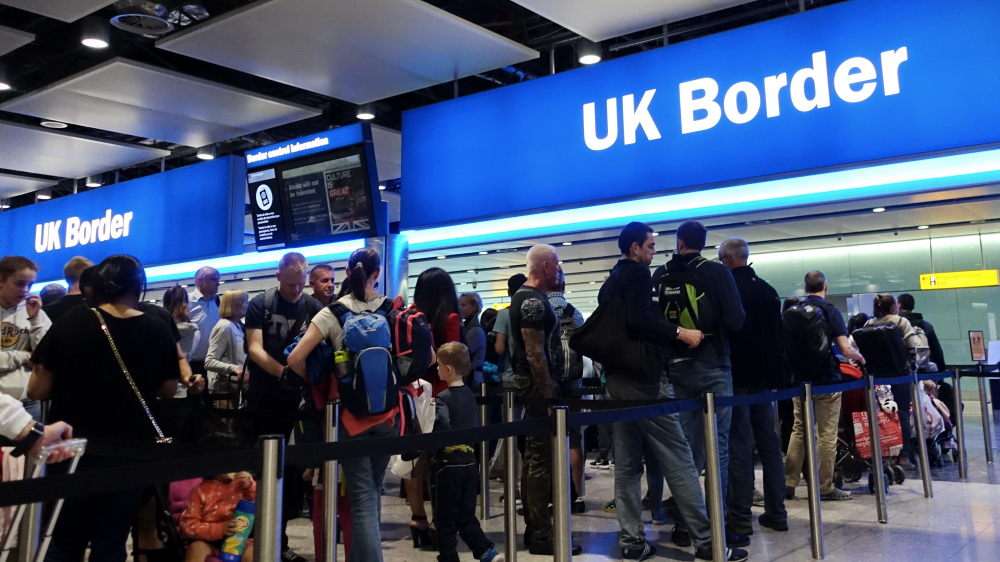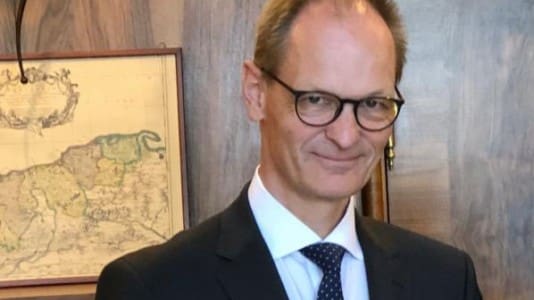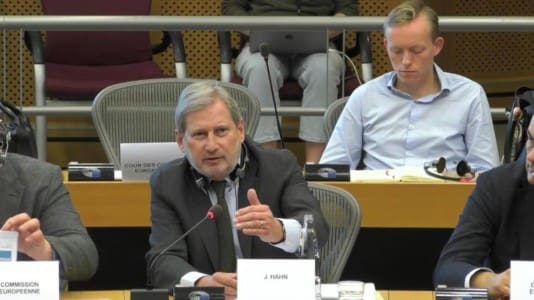Net migration into Britain last year reached a record 606,000, according to figures published by the Office for National Statistics (ONS) on Thursday.
The eagerly anticipated data exerts huge pressure on the governing Conservative party, which has overseen an era of mass immigration, the like of which has never been seen before in Britain.
The data for 2022 far surpasses the 504,000 recorded in the year to June 2022 — which was already a record figure — and is a far cry from the pledge to reduce net migration to the “tens of thousands” which had been adopted by multiple Conservative administrations in order to win power.
Just under 1.2 million migrated to Britain in 2022, while 557,000 left the country.
The ONS data revealed that the majority of newcomers last year were from outside the European Union. A total of 925,000 non-EU nationals came to Britain, followed by 151,000 EU nationals and 88,000 returning British ex-pats.

“The main drivers of the increase were people coming to the U.K. from non-EU countries for work, study and humanitarian purposes, including those arriving from Ukraine and Hong Kong,” noted ONS statistician Jay Lindop. “For the first time since using our new methods to measure migration, we have also included asylum seekers in our estimates, with around 1 in 12 non-EU migrants coming via this route.”
The rise in non-EU immigration is a new phenomenon, with EU nationals previously dominating British migration figures before Brexit. Prior to Britain’s formal withdrawal from the European Union, EU immigration accounted for 52 percent and 42 percent of total arrivals in 2018 and 2019, respectively. Now that figure is just 13 percent.
“These figures are a total breach of trust between voters and this government,” tweeted conservative broadcaster Nigel Farage. “The population explosion continues, our quality of life is declining and all the government will do is to give us more lies.”
Richard Tice, leader of the Reform party added: “The only Net Zero Britain needs is Net Zero Immigration,” alongside a graphic depicting the social consequences of mass immigration including 7 million people waiting for hospital appointments, a lack of school places, and unaffordable housing.
The Labour party has used the opportunity to call for change, with ministers using Thursday morning’s news cycle to echo the brief that the Conservatives have lost control of the country’s borders.
[pp id=76897]
“They have failed to have a strategy in place for our local labor market, and as a result of that, employers are being forced to reach for overseas immigration,” Stephen Kinnock, Labour’s shadow immigration minister, told LBC Radio.
“We need a much more balanced approach, ensuring that we have the immigration we need of course, but that there’s much more opportunity for skills, productivity training, workforce planning to get our economy firing on all cylinders again.”
[pp id=77687]
Both major parties, however, have failed to implement a measured immigration policy over the past two decades, with sky-high immigration having become commonplace in Britain. And neither side appears to be ready to take radical steps to change this.
Just last week, Prime Minister Rishi Sunak told reporters he intended to ensure that net migration be reduced to under 500,000 a year. It’s only been higher than 500,000 for the past two years and voters have been calling for stricter border controls for decades.
Meanwhile, Labour party chairwoman Anneliese Dodds told Sky News last week “that setting a net migration target isn’t sensible,” implying that in the short term, under a Labour government, Britain could see even higher net immigration.





